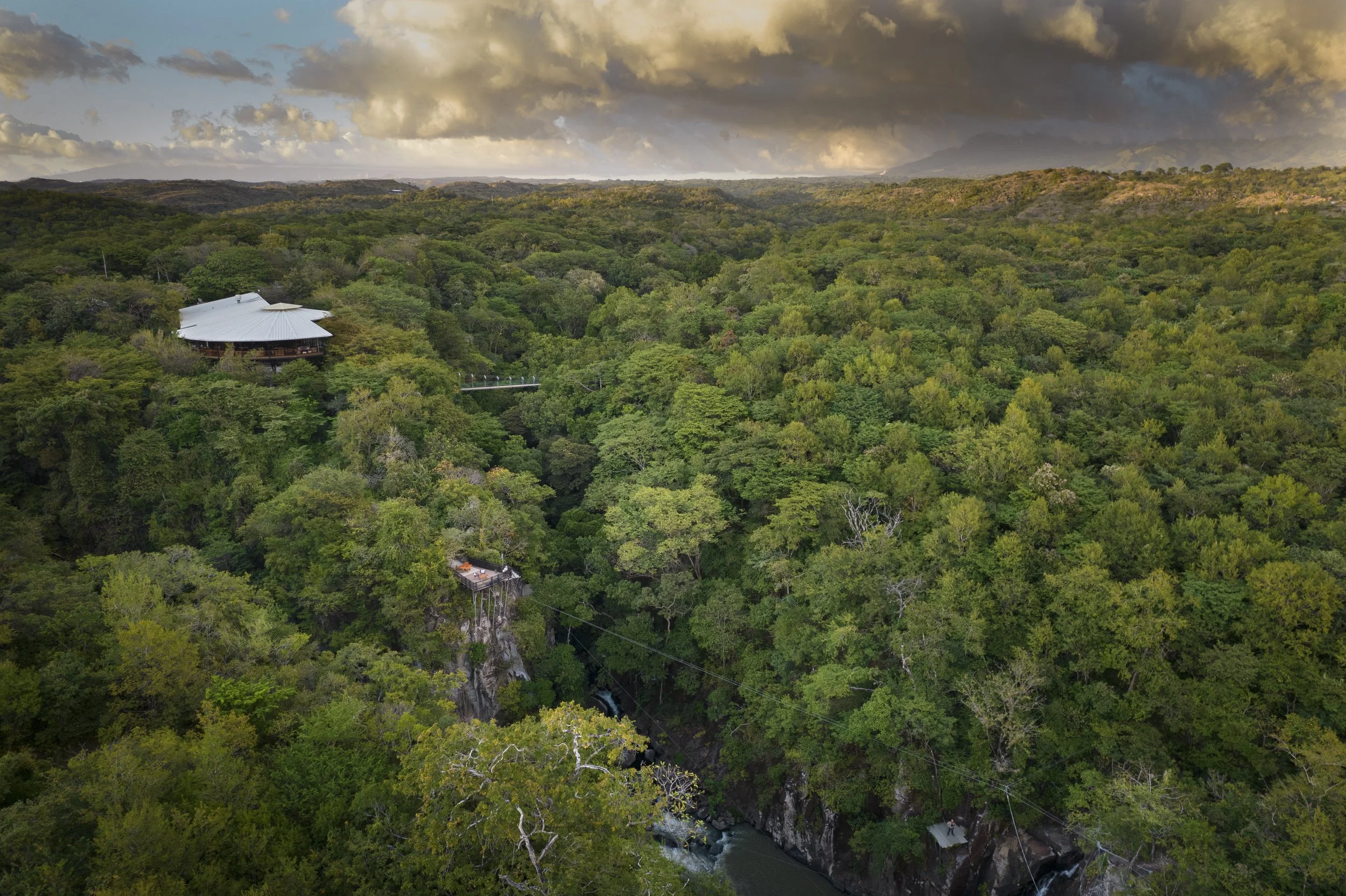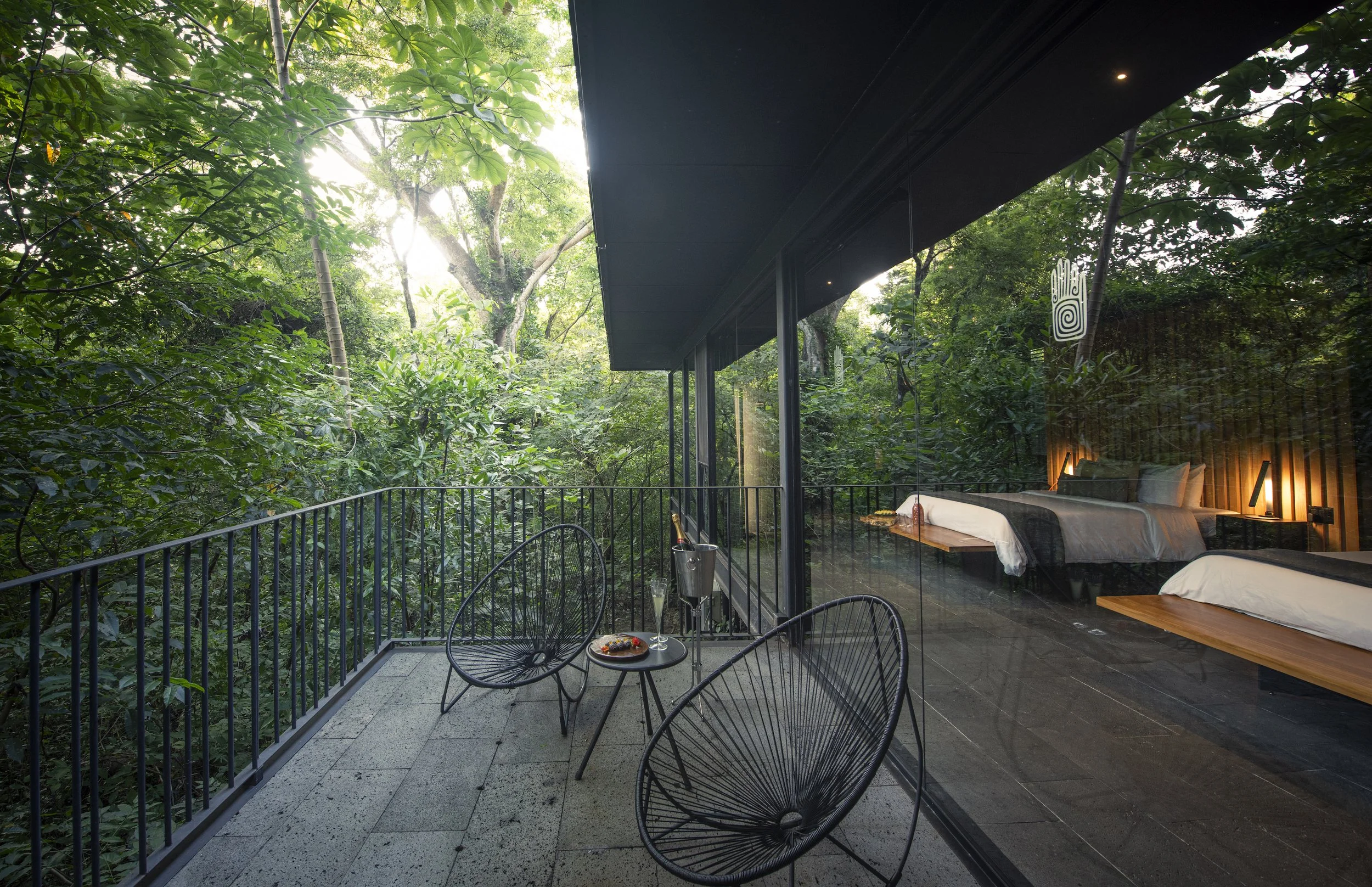IS PASSIVE WELLNESS THE NEW LUXURY?
We hear on freedom, calm and the quiet power of choice in this article by Rio Perdido, Costa Rica.
For decades, wellness tourists flocked to destinations where they were bombarded with itineraries packed with fitness classes; detoxification treatments and meals designed to reduce caloric intake and maximize nutritional value. Yet as the world has evolved, we’ve learned more about stress and our bodies' reactions to non-stop activity—as it turns out, the simple act of rushing could undo many of the benefits of intense health and wellness routines.
In response to this realization, many health-seeking travelers are yearning for destinations that foster ‘passive wellness’—a concept created and honed by the founders of Costa Rica’s Rio Perdido—defined as the ability to find the healthiest version of yourself in a calm and quiet natural environment. At Rio Perdido in the Guanacaste Province, guests are invited to design their own experiences rather than follow a prescribed schedule of sunrise yoga or sunset hikes. Central to this freedom is the property’s namesake thermal river, whose naturally heated, mineral-rich waters flow through a mile-long canyon, offering restorative pools that soothe the body and quiet the mind.
Just as individual travelers can create their own path to wellness, retreat leaders are also empowered to shape experiences that reflect the needs of their attendees. Rather than dictating a set program, Rio Perdido provides the stage—its hot springs, forest trails, and tranquil setting—allowing facilitators the flexibility to craft retreats that feel authentic and uniquely their own.
THE GROWING QUEST FOR PASSIVE WELLNESS
Years ago, a visit to a wellness destination could leave travelers exhausted and depleted. Days were hyper-scheduled with packed itineraries pre-selected for guests, based on surveys completed by visitors prior to their arrival. Meals were often presented with little room for choice, food being regarded as a vehicle for supporting weight loss, detoxification, or a host of other wellness goals. All of the activities and meals helped guests on a quest to leave their vacation as healthier versions of themselves, but little room was left for autonomy—or to simply relax and unwind from the hectic pace of everyday life. Moreover, this approach to wellness was often overwhelming, making it difficult for guests to commit to their new, healthier habits once their vacation ended.
Enter a newer, more nuanced approach to health tourism—the growing trend of passive wellness. Nowhere is this paradigm more visible than at Rio Perdido in western Costa Rica, where the setting itself doubles as an ideal wellness retreat venue. The property offers retreat leaders the freedom to design programs that meet the unique needs of their attendees, supported by the thermal river, forest trails, and restorative natural environment that encourage transformation without constraint. This approach eliminates the demanding elements of exhausting health and fitness routines, leaving space for individuals to engage in activities that truly resonate with their minds and bodies. Often, these moments unfold in nature, adding a deeply restorative layer to each guest’s wellness journey, whether experienced independently or within a retreat program.
A GENTLER APPROACH TO RESTORATIVE TOURISM
At Rio Perdido in Costa Rica’s Guanacaste Province, giving guests a quiet travel experience is simply the first step toward fostering their passive wellness experience. Rather than grouping visitors together in large buildings, guests stay in one of 38 private bungalows scattered throughout the lush forest hideaway. From the moment they step outdoors, visitors are surrounded by the deeply healing properties of nature, with an invitation to explore the property at their own pace, discovering all the hidden gems that await.
Some will choose to enjoy a guided nature walk, experiencing true forest bathing. Others may wander the mile-long stretch of the Rio Perdido thermal river, taking time to immerse themselves in its naturally heated pools, where mineral-rich waters offer a restorative escape along the winding path. Each one’s temperature varies, allowing a highly personalized thermal bathing experience that, again, combines relaxation and movement to foster both physical health and mental wellness. If guests wish to engage in adventure, they can go mountain biking, white water tubing or ziplining—silently, thanks to carbon fiber cables—through canyons, without ever leaving the property.
For those who wish to actively engage in fitness programming, Rio Perdido visitors can also choose to join a yoga class or a mindful meditation, making their way into one of the three designated pods nestled into a cliff that sits 140 feet above the geothermal river, with views of the forest canopy enhancing their practice. Hikes to and from the pods, or on any of the property trails, will also lend views of the Guanacaste Volcanic Range, combining innovative and immersive nature travel with playful fitness challenges, in one enriching experience.
AN INVITATION TO UNPLUG, A DECISION TO SELF-DIRECT
At its core, passive wellness is part of a movement that believes vacation—and health journeys in general—should be restorative, not depleting. Those who ascribe to this growing trend believe that you should be able to live optimally without having to exhaust yourself. Instead, the goal is to find a harmonious balance—within yourself and with the natural world. This fosters a rhythm where individuals follow their own intuition, taking space to listen to their bodies and to live in flow and harmony with the majesty of the surrounding world.
While the lush natural beauty of Costa Rica is particularly conducive to this way of life, Rio Perdido co-founder Gabriel Saragovia believes that passive wellness can be pursued long after his guests return to their own homes. “All guests (and staff members) will experience a tangible improvement in their well-being, even if wellness is not something that they are actively or consciously searching for,” he says. And, while it may be harder to replicate when not “experiencing the complex formula of (Rio Perdido’s) operational practices that focus on sustainability, innovation and enrichment for anyone present,” it is his greatest hope that time spent in Costa Rica serves as a true reset. Whether guests arrive on their own or as part of a guided retreat, they leave with healthier habits and well-being practices—drawn from the environment, the thermal river, and, when relevant, the structured programming of their retreat. In either case, Rio Perdido’s influence extends well beyond check-out, allowing visitors to bring home a new sense of intuitive, healthier living as the most meaningful souvenir.
For more information visit www.rioperdido.com






